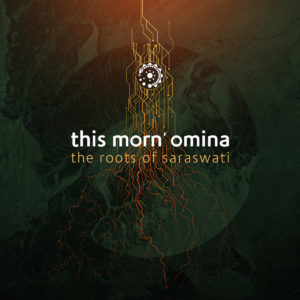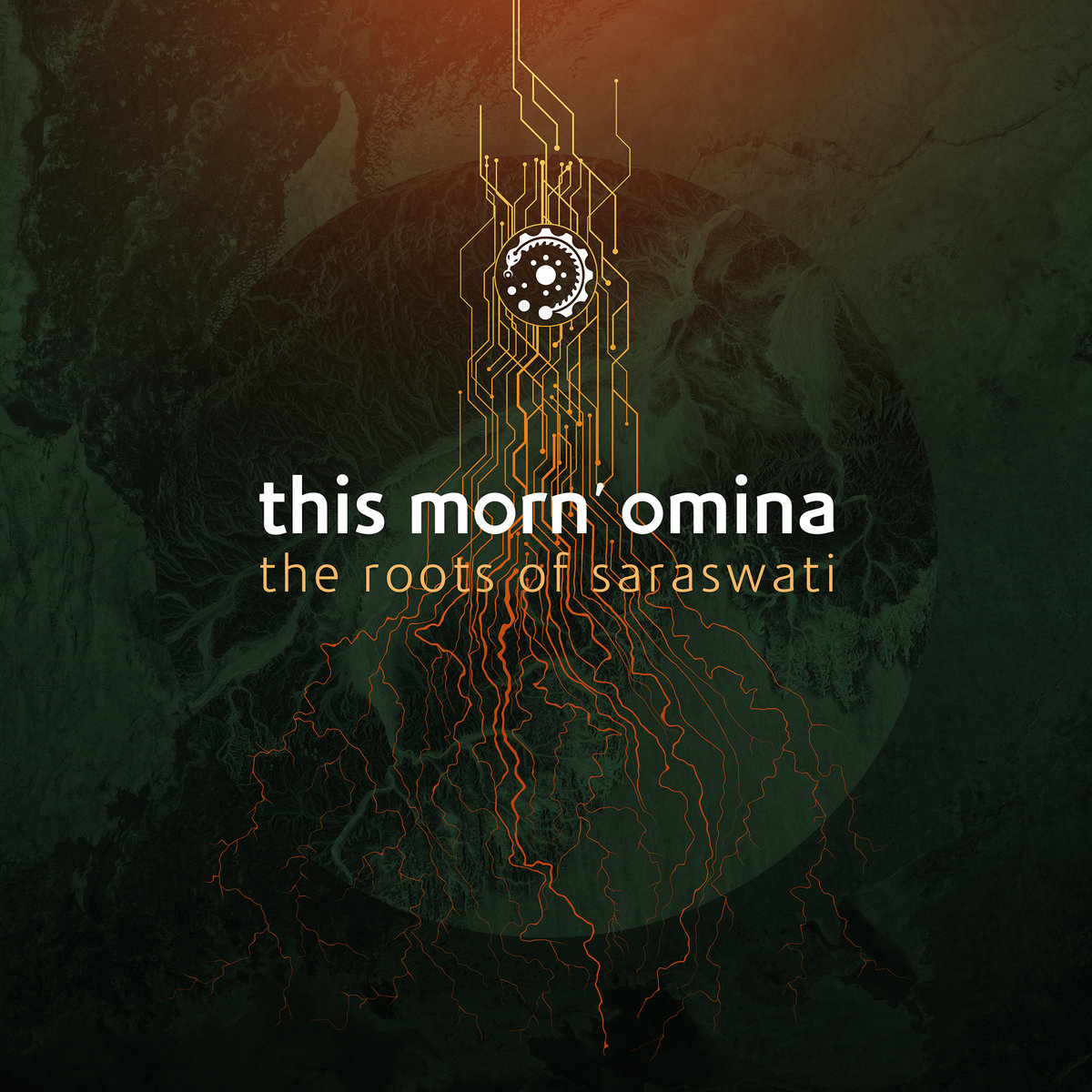
This Morn’ Omina
The Roots of Saraswati
Dependent
This Morn’ Omina’s 2021 album is a rebirth of sorts for the long running Belgian project. The basis of founder Mika Goedrijk’s vision for “ritual musik” are still here in quantity; dark synthetic atmospheres, extensive use of Hindustani, Middle Eastern, Northern and Western African percussion instruments and extensive references to buddhism and Hinduism in track titles and samples have long been TMO’s calling cards. Where The Roots of Saraswati departs from the band’s most recent catalogue is in the de-emphasis of electronic dance music tropes – gone are most of the overt rhythmic noise and trance markers they often dabbled with – in favour of a more ornate, cinematic orchestral sound.
Which is not to say that the album abandons danceability, more that its structures and ideas seem less beholden to those of DJ friendly dance music. Listen to the construction of “Naoús”; distant drums and bass drones provide a foundation for an arrangement of hand percussion which after an extensive two and a half minute build eventually coalesces into synthetic 4/4 beat, which itself breaks down into a swarm of analogue synth tones that cut apart the track’s ominous vocal sample. It’s a song that contains no end of rhythm and movement, but whose arrangement has a complexity and intent that separates it from many comparable compositions from TMO’s past.
Some of this change must be due to the influence of Scott Fox, the Canadian producer who has long cited TMO as a major influence on his work as iVardensphere. He and Goedrijk are the credited writer-producers on the record, and Fox is also credited with the mix and master, meaning that his touch is felt in basically every moment of The Roots of Saraswati. You can hear the sort of delicate sampled instrumentation that has informed contemporary iVs releases on the string-laden “Vadavigni (The All Consuming Fire)”, or in the deep synth tones that form the basis of “Nepenthe”. That latter number might be the most instructive in understanding Goedrijk and Fox’s approach to making the record; in withholding big payoffs and concentrating instead on slow builds towards melodies which it then deconstructs, it has a remarkable subtlety that belies its bursts of percussive bombast.
Truthfully, it’s those moments of vast, soundtrack like construction that offer the best and most interesting ideas that This Morn’ Omina have to offer on The Roots of Saraswati. While technically perfectly executed and designed, the albums major concessions to giving the listener a traditional banging TMO tribal industrial experience – “The Mongoose King” and “Blood Oath” – are simply less interesting than songs like “1000 Cuts (Lingh Chi)” which takes their kick-drum-first approach and creates vast, organic waves of accompaniment and counterpoint using it as a foundation. The record’s sound is less of reinvention than expansion, taking what we know and understand of This Morn’ Omina and building it out to sometimes meditative, sometimes awesome proportions.





